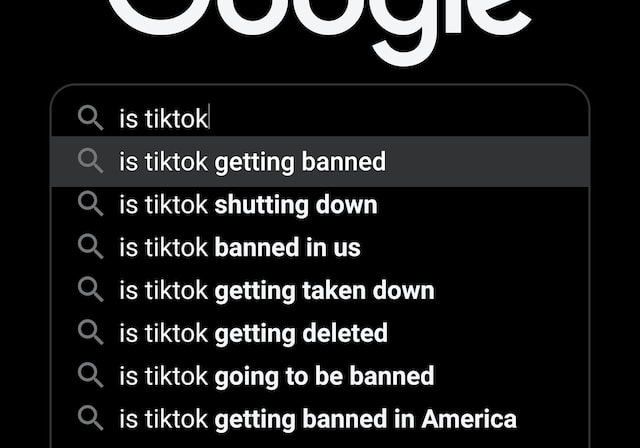Banning TikTok has long been debated since its introduction into the Western market.
Concerns with user privacy and security have been the focus of the debate.
With this in mind, a decision has been made by the Canadian Government on how to proceed.
Uncover the implications of the federal ban for everyday users as cybersecurity professionals weigh in.
Who Will be Impacted by the Ban?
The federal government of Canada has announced that it will be banning the use of TikTok on all government-issued mobile devices.
This move comes amid concerns over the safety of Canadians’ personal data, as the app is known to track its users’ data.
All employees who use government-issued phones and tablets for their work activities will not be able to access or utilize the app anymore.
Government contractors and partners may also be affected by this ban, as they are usually required to follow similar rules when working with the federal government.
Canadian citizens who rely on their smartphones for accessing public services may experience some inconvenience due to this ban, although Trudeau has stated that all measures taken would prioritize the safety of Canadians’ data.
This ban will NOT restrict the access and use of TikTok for the general public, as it only applies to government-issued mobile devices.
What Caused the Federal Government to Implement the Ban?
Mona Fortier, President of the Treasury Board, expresses that this move was a protective measure.
She states that,
“The decision to remove and block TikTok from government mobile devices is being taken as a precaution, particularly given concerns about the legal regime that governs the information collected from mobile devices, and is in line with the approach of our international partners.”
Despite the lack of evidence suggesting any government data has been jeopardized, Fortier cautioned that users should be aware of potential risks associated with employing this app. Canadians must be conscious before deciding to take advantage of its services.
TikTok commented on the federal government’s decision to impose a ban without notifying or discussing their concerns with the social media platform first.
A company spokesperson questioned why this move was made without informing the company of the decision.
The spokesperson commented on the situation saying:
“We’re disappointed that the Chief Information Officer of Canada has moved to block TikTok on government-issued mobile devices without citing any specific security concerns about TikTok or contacting us to discuss any concern prior to making this decision.
We are always available to meet with our government officials to discuss how we protect the privacy and security of Canadians, but singling out TikTok in this way does nothing to achieve that shared goal. All it does is prevent officials from reaching the public on a platform loved by millions of Canadians.”


Implications of the Ban for Digital Marketers
With this ban in place, those who work with the federal government will no longer be able to access or utilize the app, which will limit their ability to leverage its popularity and influence to promote products or services.
Additionally, businesses and organizations that are heavily reliant on social media to target government officials and those that work closely with them, may find it more difficult to reach them.
Furthermore, as TikTok is known for tracking user data which could be used by digital marketers and SEO experts for research purposes, this limitation could severely impact their ability to track trends or optimize content based on insights gained from analytics.
Overall the ban has created a unique challenge that digital marketers and SEO experts must now face in order to stay competitive in today’s market.
The Future of TikTok
It remains to be seen if other countries will follow suit and if this will ultimately lead to the app being banned worldwide.
At this time, Canada has not implemented any further restrictions on TikTok usage for the general public.
While the ban only applies to government-issued devices, Prime Minister Justin Trudeau has said that “this may be a first step, it may be the only step we need to take, but every step of the way we’re going to be making sure that we’re keeping Canadians safe.”
However, Cybersecurity experts urge Canadians to remain vigilant when using the app until more information is known about potential risks posed by third parties collecting user data or ties between TikTok and other applications such as WeChat or Tencent.
Next Steps
To protect your personal data online when using social media platforms like TikTok, we recommend regularly reviewing privacy settings related to account settings and advertisements as well as deleting any unwanted applications from your device if necessary.
In order to stay abreast of the potential changes or implications that may arise as a result of this ban, we recommend pivoting towards creating short video content on platforms such as Instagram and Youtube in the form of reels and shorts.
Although the future of TikTok is uncertain, what we do know for sure is that short video content is not going away any time soon.
Therefore, shifting your strategy to creating video content on other social platforms could prove to be beneficial.
This does not mean halting TikTok video creation altogether.
It just means shifting the focus of your marketing strategy to more stable platforms.




